|
Band Watching
Beginning and ending with The Beatles
A Short Appraisal of Brass Bands in Popular Music Culture
Our man John James once played drums with the Stranglers pop group,
so he was the perfect man to find out how brass bands have made
an impression on the Top of the Pops.
Oh, I do like to be
Beside the seaside,
I do like to be
Beside the sea,
I do like to stroll
Upon the Prom, Prom, Prom,
Where the brass bands play
Tiddely-om-pom-pom!
So just let me be
Beside the seaside,
I'll be beside myself with glee,
And there's lot of girls beside,
I should like to be beside,
Beside the sea.
English Music Hall Song
Written and composed by John A. Glover-Kind (1907)
These lyrics, perhaps some of the best known referring to a brass
band, point absolutely to the culture and society of their time
and are probably some of the most well known references to banding
in the history of popular song.
Seventy six trombones led the big parade,
With a hundred and ten cornets close at hand.
They were followed by rows and rows,
Of the finest virtuosos,
The cream of every famous band.
Fifty years later and although more a reference to an American
Marching Band than a British style Brass Band the Meredith Wilson
song from 1957 and featured in the show ‘The Music Man’
has also become synonymous with the sound of a brass band.
If we come forward another seventeen years, however, these words
taken from an LP ‘Concert Brass’ released by Invicta
Records (INV108) in 1974 do say much about the profile of brass
bands in popular music culture.
“‘Concert Brass’ is a recording which I feel sure
is going to cause a great deal of interest in the world of brass
banding. It is not aimed solely at the brass band fraternity but
is in part an exercise to demonstrate that the traditional brass
band adapts effectively to a modern style of playing without augmentation
or altering the standard compliment of players and will therefore,
I am sure, be enjoyed by an audience other than the converted.”
James Shepherd (1974)
Perhaps this quote highlights the fact that the music played by
the brass band and the potential scope of a band hadn’t, even
by the mid-seventies, been explored fully. Brass Band music just
had not been embraced or come to wider public attention and was
still hampered by the general perception of a brass band as illustrated
in those lyrics from 1907 that were quoted at the head of this article.
The world’s most successful group The Beatles changed the
face of popular music and we begin our appraisal at this point in
time, when they too, as early as June 1966 produced a lyric with
a pretty archetypal image of a brass band with a song that reached
No 1 in the UK charts.
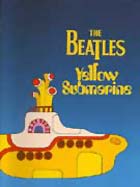 “And
our friends are all on board, Many more of them live next door,
And the band begins to play”- The Beatles – Yellow
Submarine. “And
our friends are all on board, Many more of them live next door,
And the band begins to play”- The Beatles – Yellow
Submarine.
That aside though, they did really put that conventional image
of brass arranging to bed, with the album ‘Revolver’
when Alan Civil overdubbed, on May 19, 1966, the famous French horn
solo for the song ‘For No One’ and then later on with
'The Beatles' (White Album) conjured up a most effective brass score,
performed by 14 session musicians, for the song ‘Martha My
Dear’
The sound of brass must have left some impression for when they
signed the deed in April 1967 that gave birth to The Beatles £800,000
‘Apple’ business venture in 1968 with ‘Thingumybob’
the John Foster & Sons Ltd. Black Dyke Mills Band was issued
as only the second ever single on the Apple label (Apple 4)
‘Thingumybob’ was a TV series theme song written by
Paul Mc Cartney and given to the band who did a very ‘Pepperlandish’
rendition of ‘Yellow Submarine’ for the flip side (In
the US ‘Yellow Submarine’ became the A-side). Paul McCartney
produced both cuts but unfortunately the single never fired the
public imagination and a follow-up was never cut.
The traditional concept of the brass band was still to the fore
though and was somewhat perpetuated when in 1971 Blue Mink reached
the No3 in the charts with ‘Banner Man’
So we waved our hands as we marched along
and the people smiled as we sang our song
and the world was saved as they listened to the band.
and the Banner-Man held the banner high
And the drums went Boom as the cornets play
and the tuba "umpa''d" all the way
and the kids and the dogs were laughing as they ran.
In that same year (1971) Bram Gay is credited as seeing the potential
in an ‘entertainment’ contest won over the Granada group
and the ‘Granada Band of the Year’ was established.
It broke away from an established formula of a set or own choice
test piece as each competing band was asked to provide a half-hour
programme of music that would appeal to a general television audience
not just a brass band enthusiast. One of the seeds that would bear
fruit some years later had been sown. Interestingly Black Dyke,
who had been at the heart of The Beatles endeavour to bring the
brass band to ‘pop’ culture declined the invite to compete.
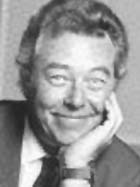 Peter
Skellern graduated from the Guildhall School of Music in 1968 where
he studied piano and he shot to fame in 1972 with his UK top three
hit, the ballad 'You're a Lady' which he wrote while working as
a hotel porter in Shaftesbury, Dorset, a village destined to impact
on brass bands a decade later. The sound of the Hanwell Band in
this song was integral to the overall appeal of this record and
it was probably the first major ‘pop’ record to really
draw on the unique sound of a brass band to compliment a contemporary
piece of music. (The track also reached number 50 in the US.) Peter
Skellern graduated from the Guildhall School of Music in 1968 where
he studied piano and he shot to fame in 1972 with his UK top three
hit, the ballad 'You're a Lady' which he wrote while working as
a hotel porter in Shaftesbury, Dorset, a village destined to impact
on brass bands a decade later. The sound of the Hanwell Band in
this song was integral to the overall appeal of this record and
it was probably the first major ‘pop’ record to really
draw on the unique sound of a brass band to compliment a contemporary
piece of music. (The track also reached number 50 in the US.)
The ‘Granada Band of the Year’ continued annually and
became a byword for innovative arrangements, choreography and entertainment
and there is little doubt that playing standard increased dramatically
due to the new demands entertainment contests placed upon the players
themselves. The BBC grasped the entertainment contest concept also
and held their own television programme from the North West of England
with the knockout series ‘Champion Brass’.
The ‘Concert Brass’ album referred to earlier, released
in 1974 and directed by Eric Banks with all new arrangements produced
by him also, had the James Shepherd Versatile Brass as the nucleus.
The J.S.V.B. whilst certainly making a huge impact on the possibilities
of creative brass playing and arrangements didn’t perhaps
impact as much as hoped on the wider musical scene. Perhaps the
J.S.V.B. most frequent airing now being their arrangement of ‘The
Typewriter’ used as the signature tune of BBC Radio 4’s
News Quiz.
The Cory Band National Champions in 1974 produced two albums in
that year that give quite a clear indication of the music being
played by brass bands at this time. ‘Sounds of Brass Vol.
19’ (SB 319) included not only the winning test piece Malcolm
Arnold’s ‘Fantasy for Brass Band Opus 114’ but
also ‘Hootenanny’. This arrangement ended up in probably
every brass band library at this time and was one of the most featured
arrangements of the day as it certainly broke the mould.
Their other album they released gave a much clearer indication
of the style and music being performed being entitled ‘National
Champions Salute Siebert’ (MSRS 1397).
Edrich Siebert whose real name was Stanley Smith Masters, was a
flautist and a saxophonist with a military band before he fell under
the spell of the brass instruments and, consequently, that of the
brass band. After the war he met Harry Mortimer who recorded Siebert's
novelties ‘Three Jolly Sailormen’ and ‘Polished
Brass’ on the first record he made with his All-Star Brass
Band. This was the beginning of a collaboration that vastly expanded
the brass band catalogue. Siebert's "Black and White Minstrels",
"The Bombastic Bombardon", "Brass Band Boogie"
and ‘Lazy Trumpeter’ were just four of his frequently
heard pieces in bands concerts, but in truth, they were never in
a style likely to wet the appetites of the wider musical tastes
of the day.
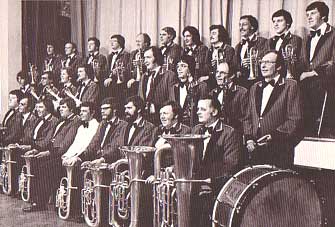
Brighouse & Rastrick - Floral Dance 1977
This all changed on the 12th November 1977 when The Brighouse
and Rastrick Band playing ‘The Floral Dance’ (BIG 548)
in an arrangement by Derek Broadbent and championed by DJ Terry
Wogan soared up the UK charts to Number 2 and brought the brass
band to an audience hitherto unknown.
This Transatlantic single with the B-side ‘Girl with the
Flaxen Hair’, which was taken from the album featuring their
‘Granada Band of the Year’ winning programme (XTRA 1160),
brought brass bands to the very forefront of popular music. Ironically
it was Paul McCartney, who had supported Black Dyke in the early
days of the Apple Corp., that kept them off the number one spot
with his Wings composition ‘Mull of Kintyre’.
An album entitled ‘The Floral Dance’ (Logo 1001) followed
on the heels of the single and also scored its success and made
No 10 in the album charts by January 1978. It featured ‘The
Lincolnshire Poacher’ the follow-up single to ‘The Floral
Dance’ but this didn’t quite make the same impression
on the single charts.
New arrangements from the pens of Derek Ashmore, Kevin Bolton,
Bob Hartley and others came on to the market and were proving that
brass bands could play popular music in the mainstream and records
featuring well-known pop songs followed in this two-year period.
Highly successful record producer Mickie Most, who became renowned
for his acerbic comments while serving on the panel of the television
talent show New Faces, released a single featuring Tredegar Band
playing ‘Send in the Clowns’ (B-side : Elite Squad)
to try an capitalise on the vogue for band sounds but this too failed
to gain any chart success.
The Logo label released the albums ‘Love You A Little Bit
More’ (Logo 1006) and ‘Music’( Mogo 4004) both
by The Brighouse and Rastrick Band whilst Chandos Records released
‘The John Foster & Sons Ltd. Black Dyke Mills Band plays
Wings’ (BBR 1001).
Whilst not incorporating a brass arrangement the number 1 UK single
from February 1978 on the Pye label namely Brian and Michael –
‘Matchstick Men and Matchstick Cats and Dogs’ did somewhat
play on the cloth cap imagery as it opened with the opening bars
of the William Rimmer march ‘Punchinello’ but it kept
the Brass Band in the public eye yet again. Also, the Tredegar Town
Band released a single which featured their flugel horn player,
Jane Russell on "Send in the Clowns" and which was the
brainchild of the famous pop promoter Mickey Most (who only died
this year and was worth £50 million by all accounts). It failed
to reach the top 20 though.
Brass Bands were heard in mainstream popular music with a frequency
never before known in modern ‘pop’ musical culture.
This though brought with it a profile that had not been exposed
quite as publicly as before namely the Performing Rights Society
(P.R.S.), Copyright and the Musicians Union.
As the repertoire embraced more and more popular music bands from
all levels were now being called on a regular basis to resubmit
P.R.S. returns and arrangers, more than ever before, had to address
copyright issues. There were quite marked financial repercussions
with bringing forward the modern repertoire and it took quite sensitive
negotiation and some financial impositions with the P.R.S. and copyright
bodies to address the issue to the satisfaction of all parties.
A steep learning curve ensued that affected brass banding at all
levels.
Whilst understanding the principals that lay behind the Musicians
Union (M.U.) sentiments of ‘Keeping Music Live’ the
professional nature of this body had not particularly affected the
amateur music making of the brass band up to this time. Bands were
now beginning to impact upon the general music scene and the concerns
of the M.U. in protecting the rights and employment of professional
musicians brought with it a call to bands to now align themselves
with the M.U.
With a greater profile on T.V. and radio and the music of bands
reaching a far greater audience it further pushed the M.U. to call
on bands to stand with the Union in adopting membership and calling
for similar remuneration as their professional counterparts.
This was a difficult time for the brass band given that the movement
is essentially amateur and this, on top of the publishing issues,
put bands under a pressure up till now unknown. Trying to compromise
was not accepted and this made bands an expensive commodity.
As a result the frequency with which they appeared on T.V. and
radio declined as the cost of such a large ensemble, up to 28 players,
made them less attractive to programme planners. As a result band
programming began, understandably, to decline and as the higher
profile of bands fell away so it may be concluded did public interest.
Bands did not disappear entirely from popular music culture but
there can be no question that it was certainly markedly affected
by these factors.
The appearances and album releases declined, however, the charts
did see another minor (No 60) hit for Peter Skellern - 'Love is
the Sweetest Thing' in 1979 which won him a Music Trades Association
Award for Best Middle of the Road album ‘Skellern’.
This album featured at its heart the Grimethorpe Colliery Band and
demonstrated once more that the brass band could with sensitive
arrangements make a mark on the popular music scene.
The year 1979 saw Paul McCartney reacquaint himself with the sound
of brass as the Wings album ‘Back To The Egg’ featured
Winter Rose / Love Awake a medley of two songs. Winter Rose a sad
and beautiful melody sung by Paul at the piano with nice orchestration
including harpsichord and deep drumming. The sadness of the song
ending with the forthcoming title, Love Awake, a gentle ballad which
led back to more joyful feelings featuring Black Dyke Mills Band
who added some overdubs in early 1979, adding their final section
on April 1st in Abbey Road.
The sound of a brass band became the darlings of advertisers when
a real upturn in exposure came in 1981 with an advert for ‘Hovis’
bread. This featured a brass band playing the Largo from Dvorak’s
New World Symphony over the picturesque Gold Hill, Shaftesbury in
Dorset described earlier with the music of Peter Skellern. With
its distinctive monologue which started 'When I were a lad' this
led to a spoof version that actually reached number 3 in the UK
charts with Tony Capstick with the Carlton Main/Frickley Colliery
Band.
Advertising from other sources now followed and notably when a
brewery also called on a brass band in its promotional material.
The Rochdale Wilsons Band recorded a promotional cassette tape featuring
arrangements by Darroll Barry and issued it with it’s ‘Top
Brass’ lager. This stimulated some album releases such as
‘20 hits from 20 Years’ by Brighouse and Rastrick Band
(MFP41 57211) but they never fully captured the previous popularity
of brass bands in the public eye.
Whilst the general music scene seemed to shift further away from
pure instrumental sounds composers and musicians have continued
to call upon the sounds of a brass band to compliment their compositions.
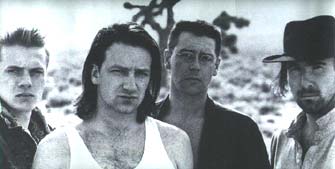
U2 - Joshua Tree
Arklow Silver were called upon by U2 and with brass arrangements
and conducted by Paul Barrett they featured on one of the rock music’s
most influential albums ‘The Joshua Tree’ The band featured
on the song ‘Red Hill Mining Town’ and since its release
in 1987 it has had sales of over 15 million with No1 album chart
positions in the UK, USA, Australia and Ireland.
Whilst arrangements for band continued to improve and mature a
decade of relative obscurity from the mainstream catalogue followed
until in 1997 when the BBC released the song ‘Perfect Day’
as a charity record for ‘Children in Need’. A million-seller
it entered the UK Charts at No 1 and combined the talents of many
megastars of pop and featured an instrumental break on tenor horn
played by Sheona White.
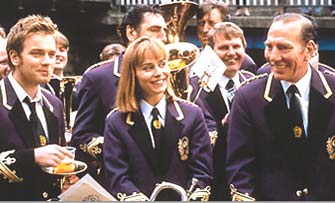
Brassed Off - Ewan McGregor, Tara Fitzgerald and Pete Postlethwaite
The release of the film ‘Brassed Off’ in 1997 certainly
brought the brass band back into the limelight. However there were
those who that felt the image portrayed of a brass band in the film
did not help the movement drop the stereotyped image or bring newer
arrangements and musical styles to the public ear. It included essentially
music of years past including a re-hash of the single hit from 20
years earlier ‘The Floral Dance’. Whilst not unsurprisingly
affecting the singles charts in any way the soundtrack did make
inroads into the album listings with a high of No 36 in June 1998.
The CD release gained some radio exposure, mainly on the ‘classical
music’ channel but none of note on modern music stations.
‘Listen to the Band’ on BBC Radio 2 being the only remaining
National contribution together with the odd few Regional programmes.
In 2002 brass bands saw their latest inclusion of a brass band
in “superstar” music as Peter Gabriel has turned, as
did The Beatles 40 years ago, to the Black Dyke Band and featured
them on his latest album ‘Up’. On the track ‘My
Head Sounds Like That’ he has used innovative digital editing
and modern recording techniques to give a quite unique sound picture
that was later to be heard when in multi-channel Dolby 5.1 when
the Hybrid SACD edition was released in 2003.
 Black
Dyke with their own latest release ‘Black Dyke Plays Beatles’
(Obrasso: CD887)
bring forward new and stimulating arrangements from Barry Forgie,
Alan Fernie, Bill Geldard and Goff Richards but with current popular
musical output featuring essentially manufactured groups and dance
beats it would appear that unless a band was to revolutionary change
and embrace the newer technologies the brass band is likely to continue
its less vaulted position in the general musical tastes of the masses. Black
Dyke with their own latest release ‘Black Dyke Plays Beatles’
(Obrasso: CD887)
bring forward new and stimulating arrangements from Barry Forgie,
Alan Fernie, Bill Geldard and Goff Richards but with current popular
musical output featuring essentially manufactured groups and dance
beats it would appear that unless a band was to revolutionary change
and embrace the newer technologies the brass band is likely to continue
its less vaulted position in the general musical tastes of the masses.
Although brass bands haven't been really seen as pop musicians
per se, but they have been surprisingly used many times over the
years to add colour and backing to many pop releases both on singles
and LP's (both now becoming defunct). It is also interesting to
note that Brighouse and Floral Dance sold twice as many singles
than the latest single to reach number 1 in the UK in June.
Brass bands may not be seen as the most hip or trendy music groups
in the world for those under the age of 15 (this is now where the
pop market is geared to), but there is little doubt brass bands
have more talent than any Pop Idol, Fame Academy starlet currently
singing other peoples songs on the tele. At least we can actually
play our instruments.
© 4BarsRest
 back
to top back
to top
| 
